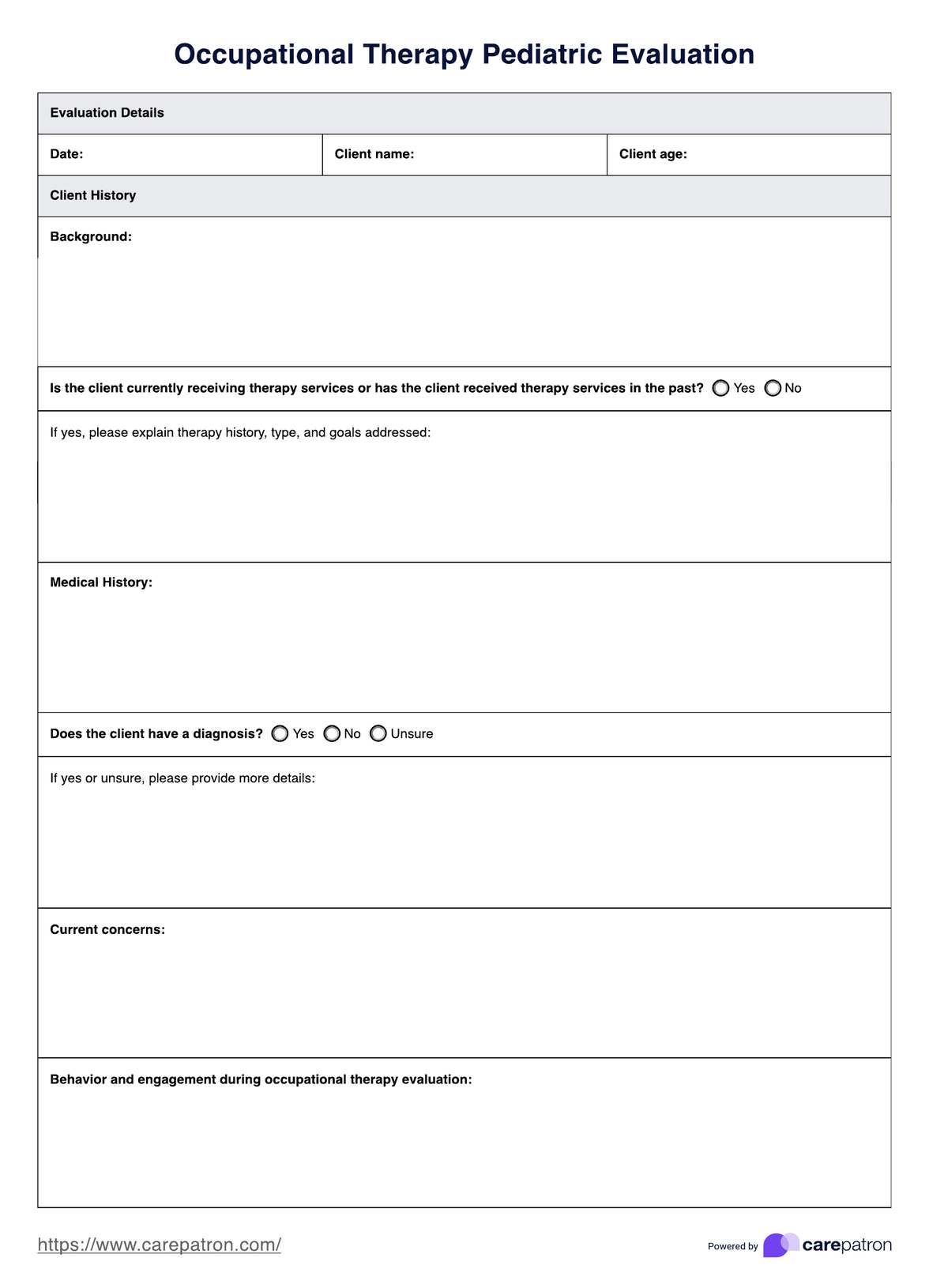
Learn about the process of pediatric occupational therapy evaluation. Download Carepatron's free PDF example to assist in understanding and conducting assessments for children.

By Wynona Jugueta on Jul 15, 2024.


Pediatric occupational therapy is a versatile intervention that addresses a spectrum of challenges children may face in their development. This specialized therapy is adept at addressing issues related to fine and gross motor skills, sensory processing, and overall functional abilities.
Children encountering difficulties in tasks requiring hand-eye coordination, such as writing, tying shoelaces, or using utensils, can benefit significantly from pediatric occupational therapy. The therapy aims to refine fine motor skills, fostering improved precision and control.
Occupational therapy provides targeted interventions for children struggling with gross motor skills, which involve larger muscle groups and body movements. This can improve coordination, balance, and participation in running, jumping, or sports.
Pediatric occupational therapy is instrumental in addressing sensory processing challenges. Children who experience sensitivities or difficulties in processing sensory information may face challenges in daily activities. Occupational therapists work to create tailored interventions that help children regulate their responses to sensory stimuli, promoting a more comfortable and focused everyday experience.
Additionally, occupational therapy supports children in developing essential life skills necessary for independent living. This includes tasks related to self-care, such as dressing, grooming, and feeding. By focusing on enhancing these functional abilities, occupational therapists contribute to a child's overall autonomy and self-esteem.
Pediatric occupational therapy is a comprehensive approach designed to address various challenges that children may encounter in their development. Tailored interventions by occupational therapists can effectively target and mitigate a range of issues, including: